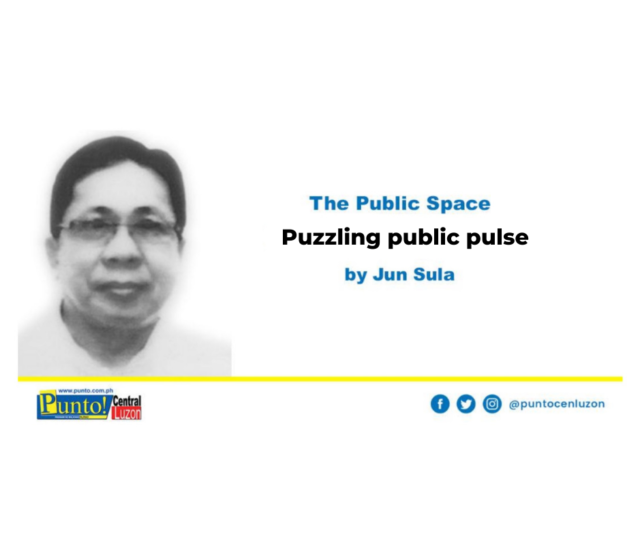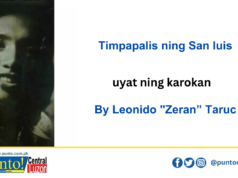Not all surveys are created equal.
This explains why some public opinion polls don’t make much sense, especially to pundits.
Take the latest surveys made by two of the country’s highly reputable polling firms. One was about the people’s approval of President Duterte. The others were on the public’s long-term view of the pandemic and how it’s hurting them hard in more ways than one.
As it turned out, President Duterte had a record high of 91 percent approval rating, or that 9 out of 10 people gave him the thumbs-up. Juxtapose this result to earlier surveys that showed 1) more than 70 percent of Filipinos thought their lives would get worse before they would get better and 2} that almost the same percentage was experiencing hunger.
The results, for all intents and purposes, appear to cancel each other out as they contradict each other.
Experts offer a number of explanations why this paradox of public opinion happens.
For one thing, they say, polling is a flawed process and has a number of loopholes which can undermine the desired perfect reading of the public pulse.
One such flaw, it is said, is that people tend to choose political correctness over truth and honesty to look good. This can be especially true in an environment when telling the truth can be costly or risky. Think of asking a respondent in a public place if a certain bully mayor is good, and you may not get the best answer to the question because of myriad concerns ranging from safety to ostracism. The wall has eyes and the ground has ears. Vulnerability masked as virtue.
Another cited drawback is on how the question is framed or worded. A simple question to the man on the street could be as complicated as quatum physics ,without he or she realizing it, out of sheer ignorance. The depth of the issue can missed.
The American journalist Walter Lippman observed that the average people do not have the time nor the inclination to handle the task of keeping with myriad issues that confront a nation.
Let’s apply his observation in our neck of the woods.
The Philippines isn’t the best example in promoting democratic values nor is it among the t he world’s leaders in fighting COVID 19. The opposite is true. The threat to our democratic institutions and our democratic values continues with laws and policies gaining more tractions that aim to curtail them . In terms of the war on the invisible virus, the Philippines is among the top countries with most cases.
The pandemic has wrought devastating impact on the lives most people, especially the poor, with millions losing their jobs and means of livelihood, their physical movements constricted by the longest lockdowns in the world.
China appears unstoppable, by vague consent, fessed up cowardice or outright coercion, in transforming Philippine territories in the West Philippine Sea into reclaimed islands for military and other purposes, notwithstanding the country’s legal rights over them.
Filipino fishermen have been deprived of their main livelihood by China’s unlawful aggression in the area, in addition to the massive destruction of fish and marine resources there.
Make no mistake about it: most Filipinos distrust China, for this and other reasons.
Given this negative background, the poll that showed Duterte enjoyed skyhigh approval rating cannot be taken but with a grain of salt. As one member of the Duterte Cabinet once said one time, it’s counterfactual.
True enough, opinion is not fact, or as an oft-quoted argument states, one is entitled to one’s opinion but not to one’s fact. On this basis, opinion surveys are considered fragile, sometimes referred to as snapshots, for obvious reason.
This point is not lost on Duterte and his advisers that, of late, they urged a research group of the University of the Philippines not to make public their suggestions on how to fight COVID 19 because Duterte doesn’t want to be influenced by public opinion.
Really? How does one explain Harry Roque’s exaggerated exuberance after learning of the high approval rating of his principal, and admonishing the Vice President to stop politicking? Public statements are a reflection of policies shaped, in part or whole, by public opinion polls, however flawed.
A most recent survey shows why the world is awash in fake news these days. The omnipresence of social media, particularly Facebook, is largely blamed, along with the proliferation of trolls, fake news spreaders from government leaders, their representatives and the regular citizens as well. In the process, legitimate media with their traditional gatekeepers are drowned out by the deluge of information, misinformation and disinformation.
Lawyer Barry Gutierrez, spokeperson for Vice President Leni Robredo, has an idea why Duterte is getting such a incredible trust rating from the public. He has more media platforms and communicators to build him up, Gutierrez said.
By logical extension,the shutdown of ABS-CBN and the continued legal harassment of Rappler, on the other hand, were a communication blackhole for Duterte’s critics.
Somehow, it is fair to assume that Cayetano played a big role in his patron’s off -the- chart approval via ABS-CBN’s close down.
But there’s caveat to how one uses opinion polls: use it a like a drunkard would use a lampost for support instead of illumination.





